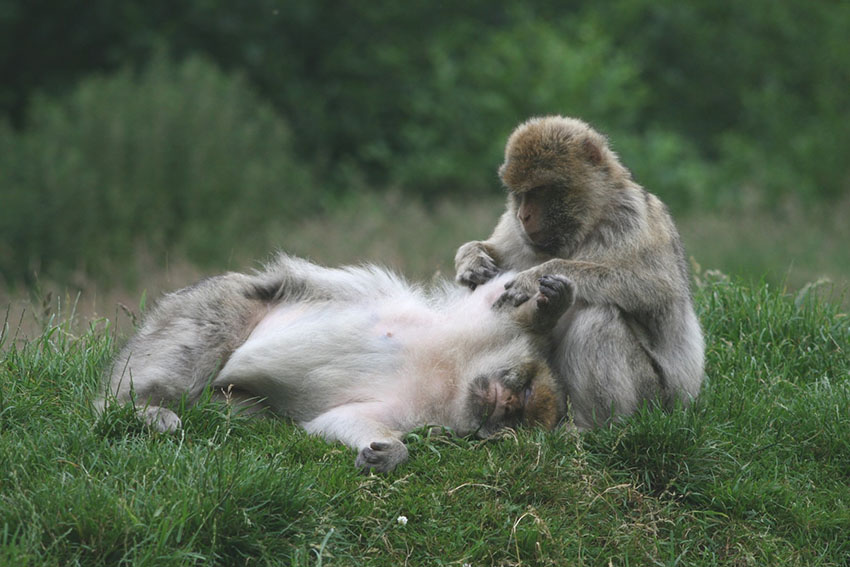New study shows friendly behaviour is contagious in monkeys
- Wednesday, December 12, 2018
Seeing others act in a friendly way not only makes people feel good, but also encourages them to pass the goodwill on. Called positive visual contagion, this phenomenon was thought to be unique to humans. Researchers from the University of Roehampton have found that monkeys also show this trait.

The new study, led by Juliette Berthier and Professor Stuart Semple from the Department of Life Sciences looked at the social interactions of Barbary macaques at Trentham Monkey Forest in Staffordshire, home to 140 macaques.
The study investigated how individuals responded to watching a specific type of friendly interaction, grooming, where one monkey picks through and cleans the fur of another. It is already well documented that both giving and receiving grooming are relaxing, reducing heart rate and stress levels, and leading to the release of feel-good hormones such as endorphins.
They measured a particular type of behaviour, known as self-directed behaviour. This provides a measure of primates’ emotions: a reduction in this behaviour indicates that animals are relaxed. The monkeys in the study showed much less self-directed behaviour after watching others groom.
The article, published today in Proceeding of the Royal Society B, show that when female monkeys watch others being groomed, they share the positive feelings. In other words, for these animals, observing others relax is in itself relaxing.
It was found that watching grooming also made monkeys more tolerant, and predisposed to act in a friendly way to their fellow group members. In particular, they actively sought out others to groom with, and when they found a partner, they were more likely to give grooming than to receive it.
Study lead Juliette Berthier said, “Until now, research into this behaviour has focussed on the animals directly involved; these new results show that grooming can also have positive effects on bystanders which leads to friendly behaviour spreading through the group just as it does in human society.”
Study co-author, Professor Stuart Semple said, “These results are important because positive visual contagion may play a key role in social cohesion not just in this species, but also in the many mammal and bird species where grooming occurs.”
The Department of Life Sciences offers an outstanding undergraduate degree in MRes Primate Biology and Conservation and staff undertake world-class research which changes lives and furthers our understanding of science.